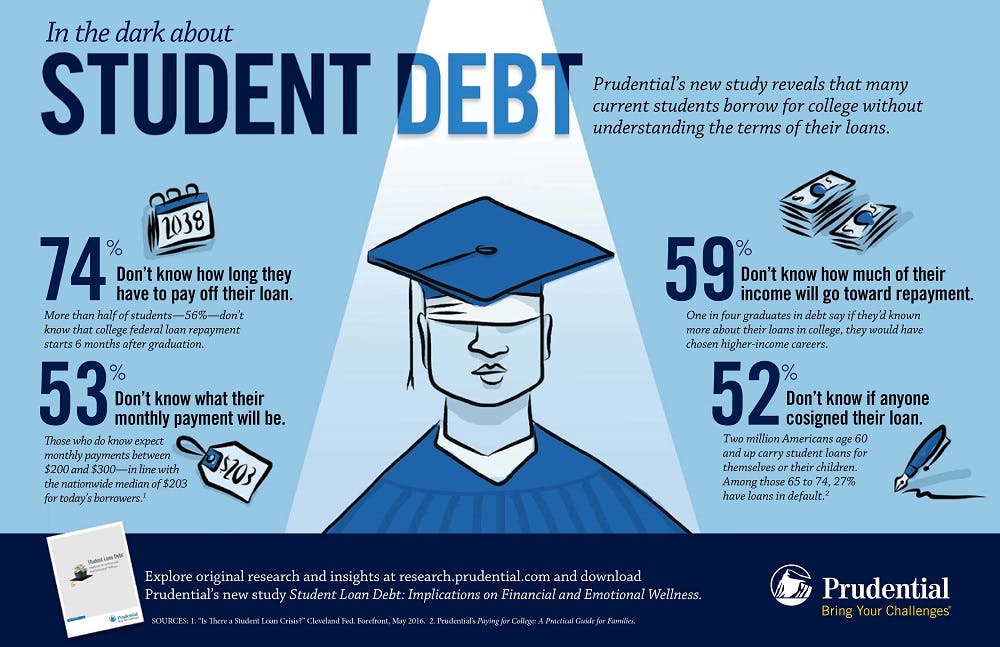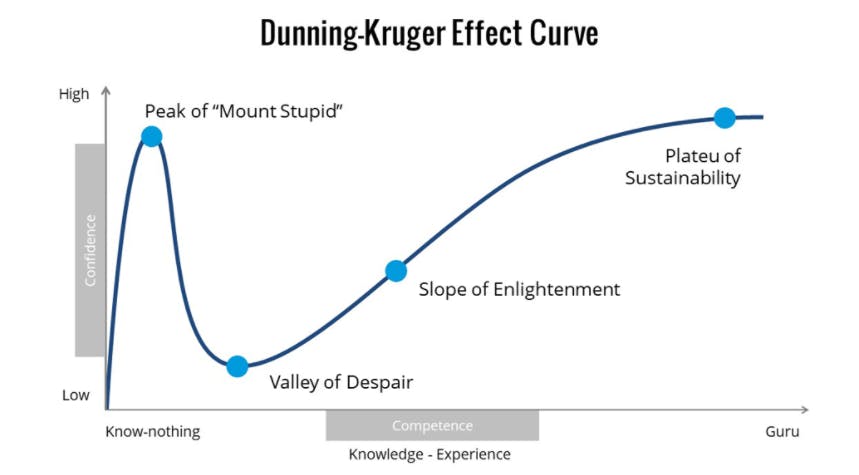"An investment in knowledge pays the best interest" - Benjamin Franklin
There is no doubt that higher education is often crucial when you are trying to get into a specific niche in your domain (like Data Science, Machine Learning), or trying to bump up your pay grade, but it comes at a cost. Let me start with the warnings.
1. The finance
On-campus degree programs are often very expensive, and not all can afford them without scholarships. If you already have a loan from your bachelor's or have a family that is dependant on your current income, financing the education with a loan is a really bad idea. Do not fall for placement guarantees, and assume you would be that guy who bagged the maximum package of the year. Life happens, pandemic happens, geopolitical conflicts happen. While dreaming of a bright future, count the numbers in a pessimistic way. While a lot of online courses are now popping up, at a fractional cost of on-campus courses, they are still expensive.
 Student Loan debt, from Prudential
Student Loan debt, from Prudential
2. The time
If you have taken some MOOCs along the way and under the impression that a degree program would be a similar experience, you are way off! To get the degree, you have to take a couple of subjects (the most popular is 30 credit hours that translates to 10 courses). Some of them might be a little easier, but most are not. In OMSCS, I easily spend 10-15 hours per week per semester and will increase as I take harder courses. Being a part-time student with a full-time job is quite stressful, so reevaluate if you are ready to sacrifice most of your social life for the next few years.
3. The purpose
Please do not do it just because people around you are doing it, or your parents want you to do it! For that matter, don't do it even if your company wants you to do it, but is not helping you with the finances (remember the first point). If you don't yearn for the knowledge, you will end up giving it minimum effort and getting through without learning much. If it is just the final piece of paper that you seek, real-life experience and projects will serve your resume much better.
4. Time of life
True everyone has their own timeline, and what works for me, might not work for you. But jumping into a master's right as you get your bachelor's degree might be a rush. A few years of industry experience is often a good eye-opener. The real world works quite a bit differently than the archaic books we study in our syllabus. The wisdom from your own experience will beautifully complement your knowledge from a Master's degree.
5. Industry knowledge
While an advanced degree will help you, they are still not at par with how the industry operates. If you seek pure technical knowledge to aid your existing job, a MOOC, or workshops are a better solution. And always RTFM!
Now, if you have the source to fund your education, the time to work on it, and a passion for knowledge, a Master's degree can do wonders.
1. Break your shell
We often think we know more than we actually do, which is due to the fact that we do not yet know what else is out there. The Dunning-Kruger effect demonstrates this in a simple way. So go out there and overcome that valley of despair!
 Dunning-Kruger curve, from slidemodel
Dunning-Kruger curve, from slidemodel
2. Make more neural connections
As we often work in a domain, we start specializing in that domain, and our knowledge of other domains starts phasing out. Getting an advanced degree gives you another chance to go back to the basics and dive deeper. This will give you an opportunity to dig at a problem from another perspective. It often will help you squeeze the last bit of performance for some optimization.
3. Make new social connection
This one is a lot easier and helps in the form of study groups when on-campus. For online courses as well there are discussion forums where you can meet amazing people. When doing group projects, or participating in a Piazza discussion, you learn so much. Also, the diversity (gender, geographical, academic) in an online degree program open our eyes to the biases we inherently possess.
4. Time management
Forget those hours of scrolling through reddit/instagram. Forget Netfix. Forget clocking in extra hours at work indefinitely. If you want to survive a rigorous degree program, you need to stick to a schedule. If you are a morning person, allocate a few hours in the morning to study; if you are a night owl, do it at night. Spend the weekends on projects/extra readings. And slowly you can ease back in an episode every few days, or a Friday night outing (pre Covid conditions). Check out my post on Time Management to learn more.
5. Get new opportunities
If you are looking for a pay raise or want to try out say Artificial Intelligence, a masters degree will often get you to the door. Keep in mind that it only leads you to the door, and you'll need experience and core knowledge to get yourself through. Do not expect a company to offer you a 50% rise just because you hold a degree. In case of on-campus programs, you are also exposed to research opportunities.
Conclusion
Now that we have a balanced pros and cons list, its your job to evaluate if the pros outweigh the cons in your specific case. Remeber that there will always be exceptions, but if everyone was an exception, there would have been none.

